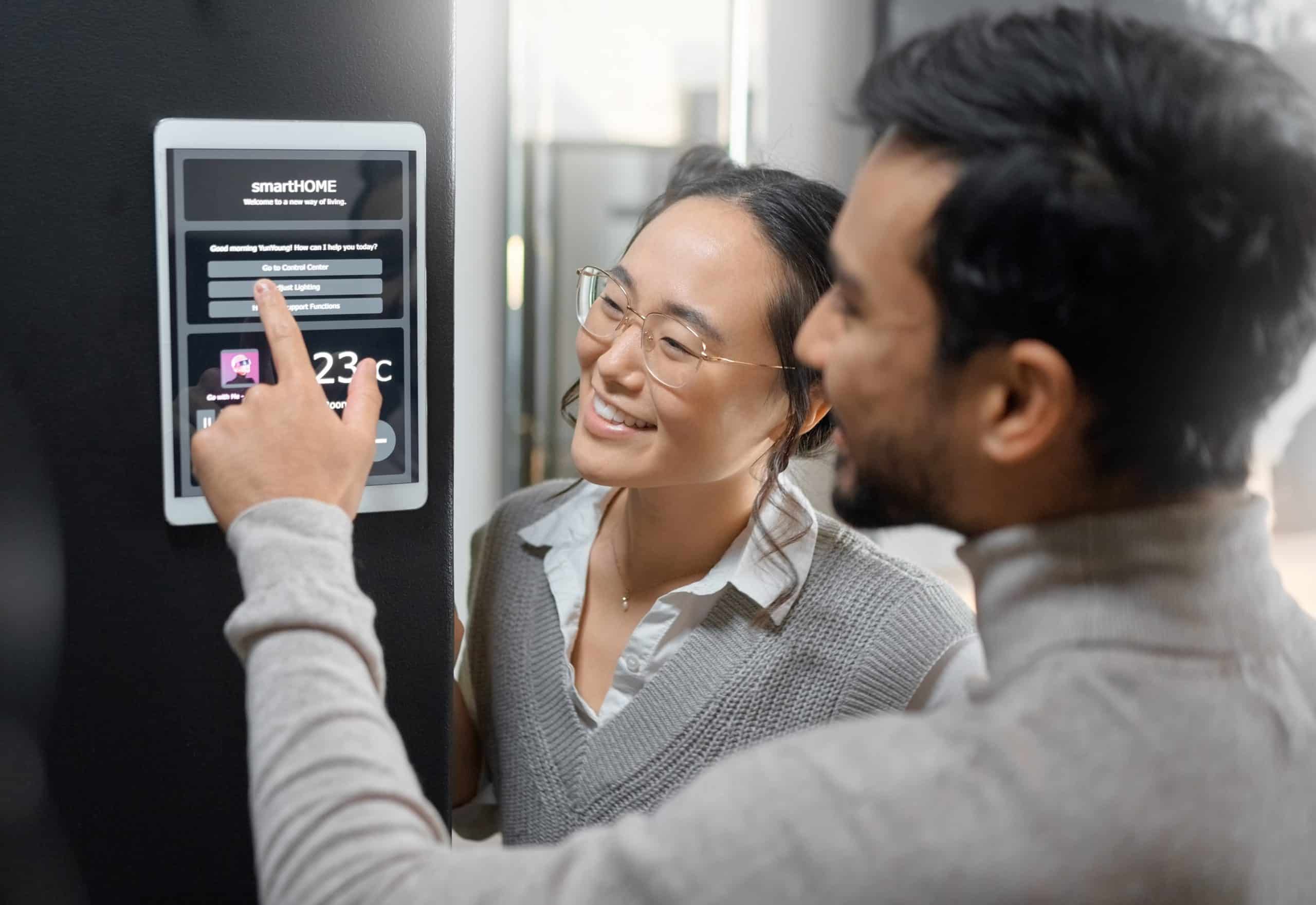In an era where technology is king, luxury real estate is not left behind. High-end properties are increasingly leveraging advanced systems to offer unparalleled convenience and high-security levels. One of such technologies is biometrics, a smart security system that uses unique physiological or behavioral characteristics for identification and access control. From facial recognition to fingerprint scans, biometrics is redefining security in luxury homes and hotels. With real-time data, property owners can maintain a secure environment while reaping the convenience that comes with biometric systems.
Biometrics: The Evolution of Security Solutions
Biometrics is not a new phenomenon in the technology landscape. However, its application in luxury real estate is a relatively recent development. By using unique biological attributes, like fingerprints, iris patterns, and facial structure, biometric security systems offer a robust, smart, and sophisticated solution for luxury property security.
A lire aussi : What Are the Best Practices for Creating a Real Estate Investment Fund Targeting Green Buildings?
Luxury real estate owners are increasingly seeking out high-tech solutions to ensure the safety of their properties. Traditional security measures such as standard lock and key systems or passcodes have proven less effective and far less convenient than biometric technology. These outdated methods cannot offer the high level of security demanded by luxury properties. Biometrics, on the other hand, provides a virtually impregnable security system, significantly reducing instances of unauthorized access or break-ins.
The Integration of Biometric Technology in Luxury Properties
The application of biometric technology in luxury homes and hotels is multifaceted. It is used not just for access control but is also incorporated into various aspects of the property to enhance security. This integration has been instrumental in advancing safety measures in luxury real estate.
A lire aussi : How to Design Homes That Can Adapt to Multiple Generations Under One Roof?
One popular application of this technology is facial recognition. High-definition cameras and software are installed at entrances and other crucial areas around the property. These systems capture and analyze facial features to confirm identities, permitting or denying access based on the data in their database.
Likewise, fingerprint or hand geometry biometrics have found a place in luxury real estate. These systems scan and verify fingerprints or hand structures, offering a quick and convenient access method. Unlike traditional lock systems that can be manipulated, fingerprint biometrics ensures only authorized persons can gain access, significantly enhancing security.
The Convenience Factor: Biometrics and Smart Living
While the high-security levels offered by biometrics are its primary attraction, these systems also bring a level of ease and convenience to luxury living. Biometric technology, when integrated with other smart systems in a property, can create a seamless and highly personalized user experience.
For instance, in a smart home, biometrics can be used to personalize settings based on the identified user. Facial recognition or fingerprint biometrics can trigger personalized settings such as lighting preferences, room temperatures, and even favorite music. This level of automation and personalization truly embodies the essence of luxury living.
Moreover, biometrics provides homeowners the ability to monitor their property in real-time. With mobile integration, homeowners can receive instant notifications of access attempts, successful or not. This feature is not only convenient but also adds an extra layer of security.
The Future of Biometrics in Luxury Real Estate
With the continuous advancement of technology, the application of biometric systems in luxury real estate is expected to grow further. The future of biometrics is promising, with ongoing developments focused on increasing the accuracy, speed, and convenience of these systems.
For instance, newer forms of biometrics such as voice recognition, vein pattern recognition, and even heart rhythm recognition are being explored. These technologies, once perfected and commercialized, will surely further transform the security landscape of luxury real estate.
Also, with the rise of smart cities, biometric technology is expected to be deeply integrated into the urban fabric. Luxury properties will not only use biometrics for access control but will extend its application to connect with other properties, utility providers, and even law enforcement agencies, creating a tightly-knit, secure, and highly efficient urban ecosystem.
Luxury real estate continues to embrace technology to enhance security and improve property value. Biometric systems have proven to be a game-changer, offering a smart, high-security solution that marries convenience with control. As technology advances, biometrics will undoubtedly continue to play a pivotal role in defining luxury living.
Biometrics: Trends and Innovations in Luxury Real Estate
Technological innovation is a constant in the realm of biometric security. The industry is always evolving, pushing boundaries to introduce new and improved ways to optimise security measures. This drive for innovation is clearly reflected in the luxury real estate sector.
A notable trend in this area is the move towards multi-modal biometric systems. These systems use more than one form of biometric recognition technology, combining facial recognition, fingerprint scans, iris patterns and more. The goal is to improve accuracy and reliability, while also making it even harder for unauthorized parties to breach security measures. This trend also ensures that luxury homes are protected by the most comprehensive and advanced security systems available.
Another significant trend is the integration of biometric technology with other smart technology within luxury homes. For instance, biometric access control systems can be linked with home automation systems, enhancing not only security but also the overall guest experience. This integration allows for a more seamless and personalized interaction with the home, from adjusting lighting and temperature to playing favorite music based on the biometric identification of the individual.
Moreover, real-time monitoring and mobile integration have become key features in biometric security. These functionalities enable homeowners to monitor their property remotely and receive instant notifications about access attempts. This level of control and real-time information greatly enhances security and peace of mind for property owners.
Looking Ahead: The Future of Biometric Security in Luxury Real Estate
The adoption of biometric solutions in luxury real estate is not just a passing trend; it’s the future. As biometric technology continues to evolve, so too will its implementation in high-end properties. Advances in facial recognition, fingerprint scanning, and other biometric screening methods promise even higher security levels and greater convenience, enhancing the lifestyle of luxury homeowners.
One exciting development on the horizon is the increasing use of behavioral biometrics. This involves the use of technology to identify individuals based on their unique behavioral traits, such as keystroke patterns or navigation habits. This technology has the potential to provide yet another layer of security and personalization to luxury real estate.
In conclusion, the application of biometric technologies in luxury real estate has revolutionized security measures, offering sophisticated, reliable, and convenient solutions. This technology has not only significantly improved the security of luxury properties but has also enhanced the guest experience, offering unprecedented levels of automation and personalization.
As technology continues to advance, we can expect to see even more exciting developments and innovations in the field of biometrics. Whether it’s multi-modal systems, integration with smart home technology, or the advent of behavioral biometrics, the future of biometric security in luxury real estate is bright and promising. As the luxury real estate market continues to embrace these technological advancements, biometrics will undoubtedly remain a crucial aspect of luxury living.
















